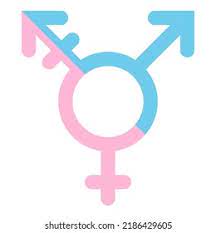When we think of hormones, estrogen usually brings to mind women and their reproductive health. However, estrogen is not exclusive to females; guys have it too! It’s a lesser-known fact that men produce estrogen, albeit in lower quantities than women. This article dives into the role of estrogen in men’s bodies and why it’s important to understand its effects on health and well-being. So, let’s dig into the nitty-gritty of male estrogen!
What’s the Deal with Estrogen in Guys Anyway?
Estrogen is often labeled as a "female hormone," but it plays a crucial role in the male body as well. Just like testosterone regulates many male characteristics, estrogen contributes to various physiological processes in men. It helps to regulate bone density, fat distribution, and even libido. Understanding that men need a certain level of estrogen to maintain a healthy balance is essential for grasping male hormonal health.Feminine HormonesSissy Boy Hypnosis
In men, estrogen is primarily produced through the conversion of testosterone via an enzyme called aromatase. While the amount of estrogen present in men is much lower than in women, it is vital for maintaining overall hormone balance. So, if you’re wondering whether guys have estrogen, the answer is a resounding yes! It’s not just a women’s game; men need it too.
The Science Behind Male Hormones: Estrogen’s Role
Estrogen in men is involved in several critical functions that are often overlooked. For one, it aids in the development of sperm and plays a role in sexual function. The hormone also contributes to cardiovascular health by helping maintain healthy cholesterol levels and promoting vascular function. This means that estrogen is not just a secondary player in the male endocrine system; it’s quite significant.
Moreover, estrogen plays a role in brain function and mood regulation. It interacts with neurotransmitters, influencing mood, cognition, and even memory. This connection between estrogen and mental health highlights why it’s crucial for men to maintain balanced levels of this hormone. Ignoring its presence could lead to issues that many may not recognize as hormone-related.
How Much Estrogen Do Men Actually Produce?
On average, men produce about 20-50 picograms per milliliter of estradiol, the primary form of estrogen, in their bloodstream. This amount is substantially lower than the levels typically found in women, who can have estradiol levels ranging from 100 to 400 picograms per milliliter, depending on their hormonal phase. While these figures might seem small, they are enough to play a significant role in male physiology.
It’s important to note that these levels can fluctuate due to various factors such as age, lifestyle, and overall health. Younger men tend to have higher natural estrogen levels compared to older men, whose estrogen levels may decline. Understanding the normal range of estrogen is crucial for recognizing when something might be amiss in your hormonal health.
Estrogen vs. Testosterone: The Male Hormonal Balance
Testosterone and estrogen are like dance partners in the male hormonal ecosystem. While testosterone is often celebrated for its role in developing masculine traits, such as muscle mass and facial hair, estrogen works quietly in the background to maintain balance. Think of testosterone as the energizing force while estrogen represents the grounding element. Both are essential for overall male health.
An imbalance between these hormones can lead to various health issues. For instance, low testosterone levels with high estrogen can result in symptoms like fatigue, reduced libido, and even mood swings. On the flip side, elevated testosterone levels with low estrogen can lead to aggressive behaviors and other undesirable effects. Maintaining the right balance is crucial for ensuring physical and mental well-being.
Signs of High Estrogen Levels in Men to Watch For
While estrogen is necessary for men, too much of it can lead to unwanted symptoms and health issues. Some common signs of elevated estrogen levels include weight gain, particularly around the breast area (gynecomastia), decreased libido, erectile dysfunction, and mood swings. These symptoms can be alarming and may lead men to question their overall health.
In some cases, high estrogen levels can also manifest as fatigue, loss of muscle mass, and even hair loss. Recognizing these signs is the first step toward understanding whether hormonal levels may be out of balance. If you experience one or more of these symptoms, it might be time to consult a healthcare professional for further evaluation.
What Causes Elevated Estrogen in Men?
Several factors can contribute to elevated estrogen levels in men. One common culprit is obesity, as adipose tissue (fat) can produce estrogen through aromatization, leading to an increase in overall estrogen levels. Additionally, certain medications, such as those used for prostate cancer or hormonal therapies, can also raise estrogen levels.
Environmental factors should not be overlooked either. Exposure to endocrine disruptors, found in some plastics and personal care products, can interfere with hormone balance. Lifestyle choices, such as excessive alcohol consumption and a lack of physical activity, can exacerbate high estrogen levels too. Understanding these causes can empower men to make healthier lifestyle choices.
The Impact of Estrogen on Men’s Health and Mood
The influence of estrogen on men’s health and mood is more significant than many may realize. Elevated estrogen can lead to mental health issues such as anxiety and depression, as hormonal imbalances often manifest in emotional challenges. Additionally, high estrogen levels can negatively impact physical health, leading to increased risks of cardiovascular diseases and metabolic syndrome.
On the flip side, balanced estrogen levels contribute to emotional stability and overall well-being. They can help regulate mood swings and improve cognitive function. Thus, maintaining a healthy level of estrogen is crucial for both mental and physical health, showing that this "female hormone" plays a vital role in the male experience, too.
In summary, guys do have estrogen, and it plays a vital role in maintaining their overall health. While it’s easy to overlook this hormone in the context of male biology, understanding its implications on mood, health, and hormonal balance is essential. If you suspect your estrogen levels might be off-kilter, don’t hesitate to consult a healthcare provider. Awareness is the first step toward better health, so keep those hormones balanced for a happier, healthier life!


